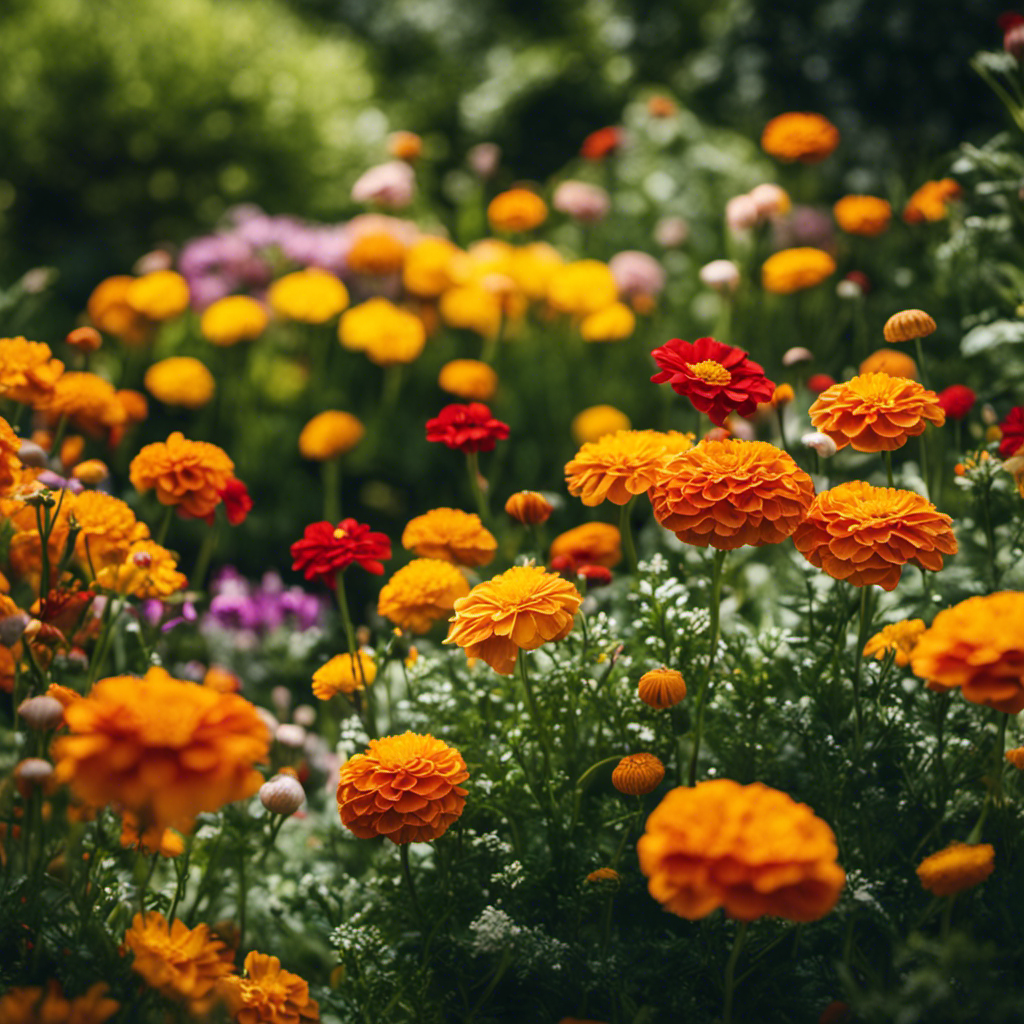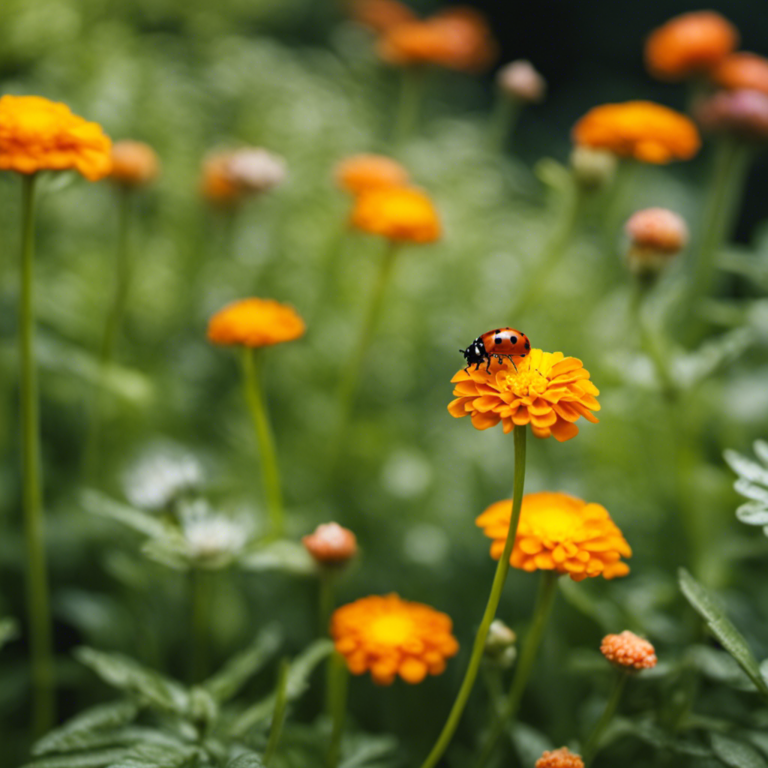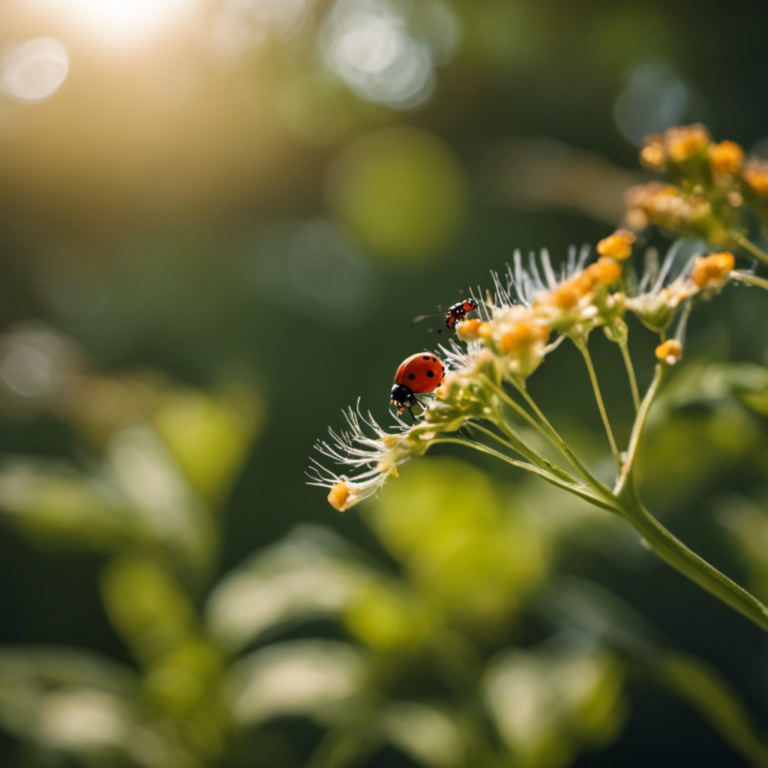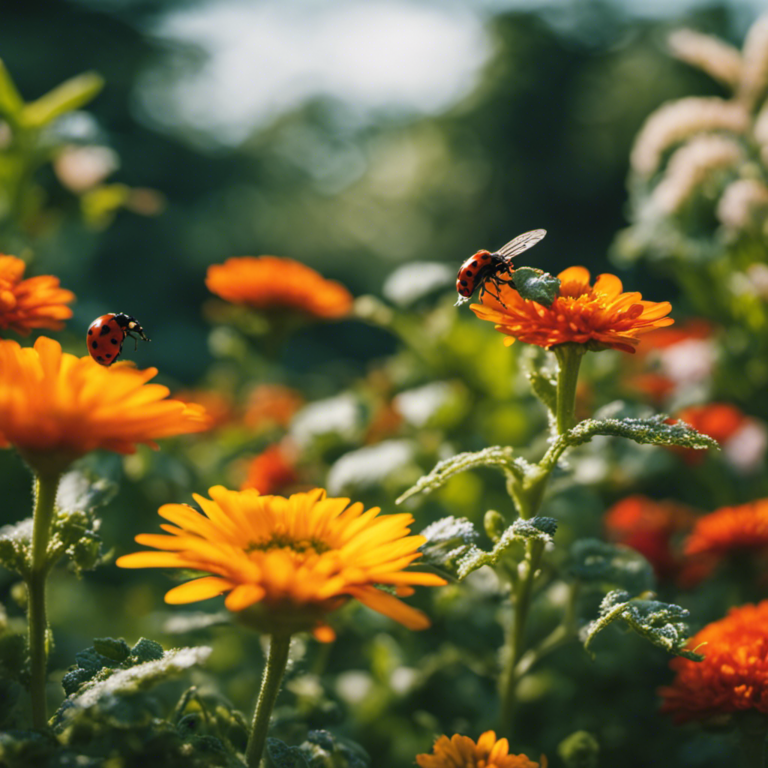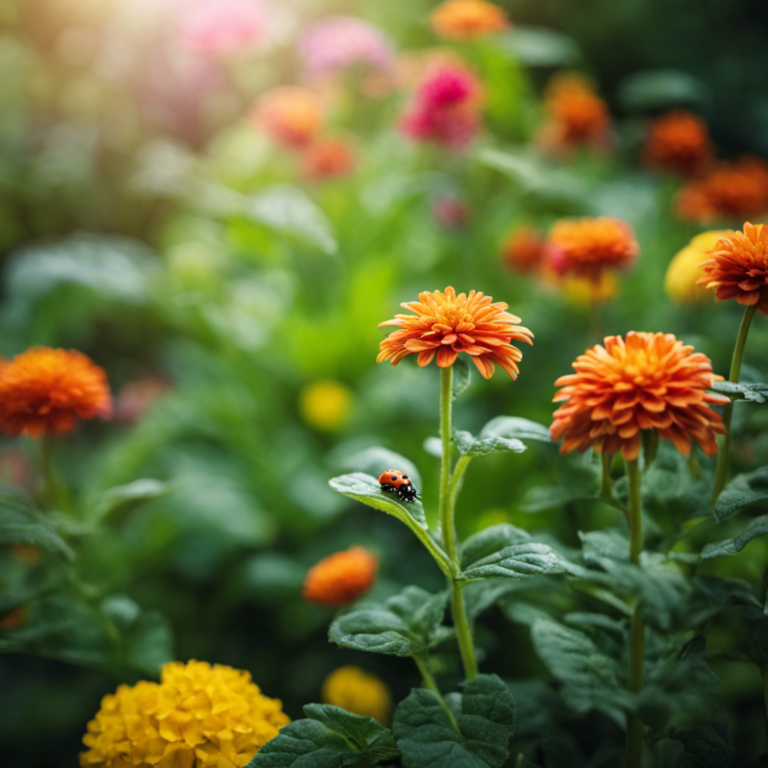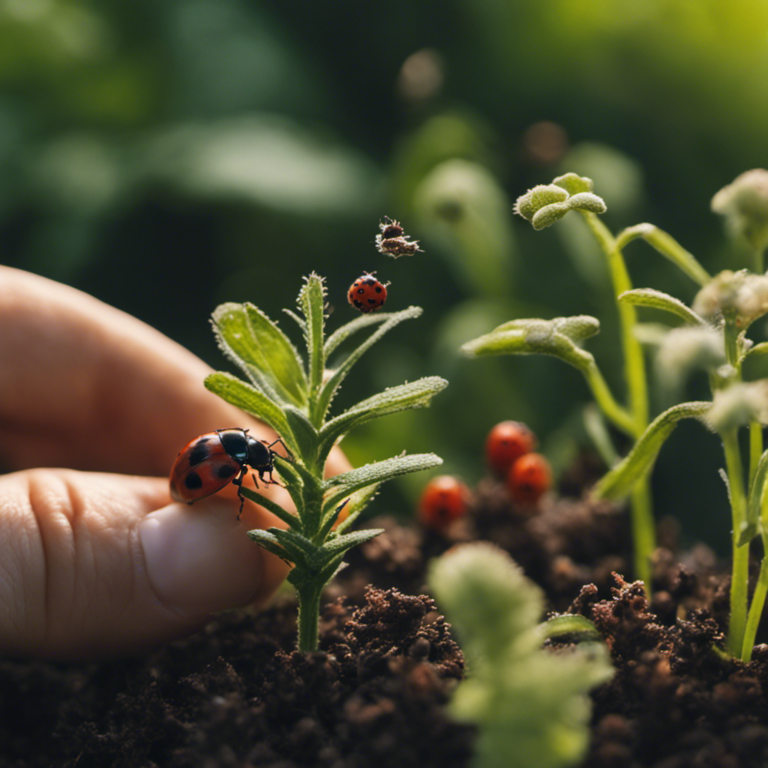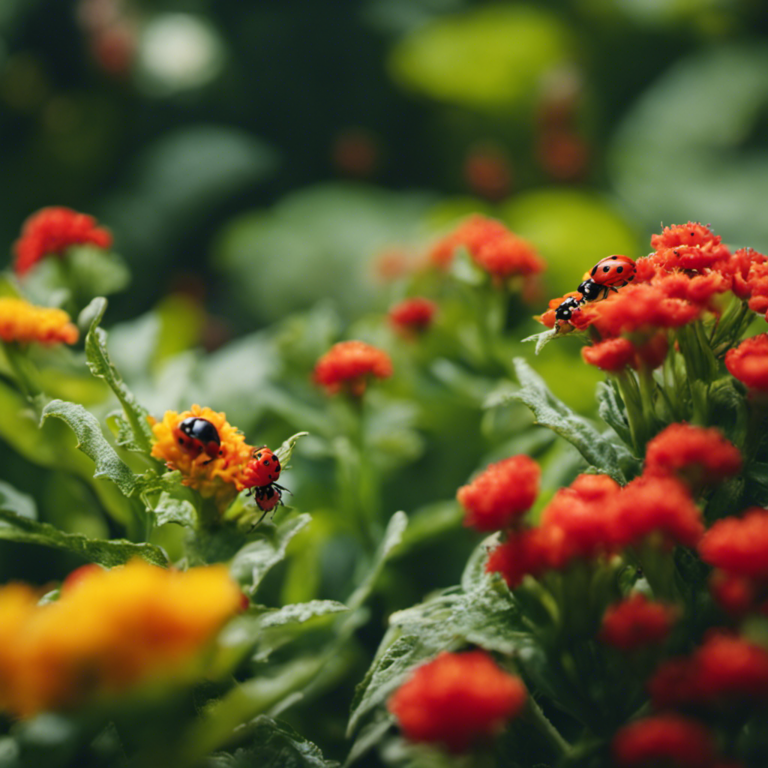Is your green garden oasis being invaded by pesky bugs? Don’t worry, because you have the power to naturally banish them!
Let’s explore some clever tricks that will help your garden thrive while keeping those bugs at bay.
Tap into the potential of essential oils, take advantage of companion planting techniques, and create your own homemade insecticidal sprays.
Additionally, you can rely on nature’s own pest control army – beneficial insects – and strengthen your garden’s defenses with physical barriers.
By following these eco-friendly gardening tips, you’ll be able to transform your outdoor space into a peaceful and bug-free paradise.
Key Takeaways
Incorporating essential oils, companion planting, homemade insecticidal sprays, and beneficial insects can help you create a green garden that is naturally free from pests. These effective techniques not only provide pest control but also contribute to a healthier and more sustainable gardening experience.
By banishing bugs naturally, you can enjoy a garden that is not only beautiful but also environmentally friendly. Your garden will appreciate it, and so will the planet.
Essential Oils for Pest Control
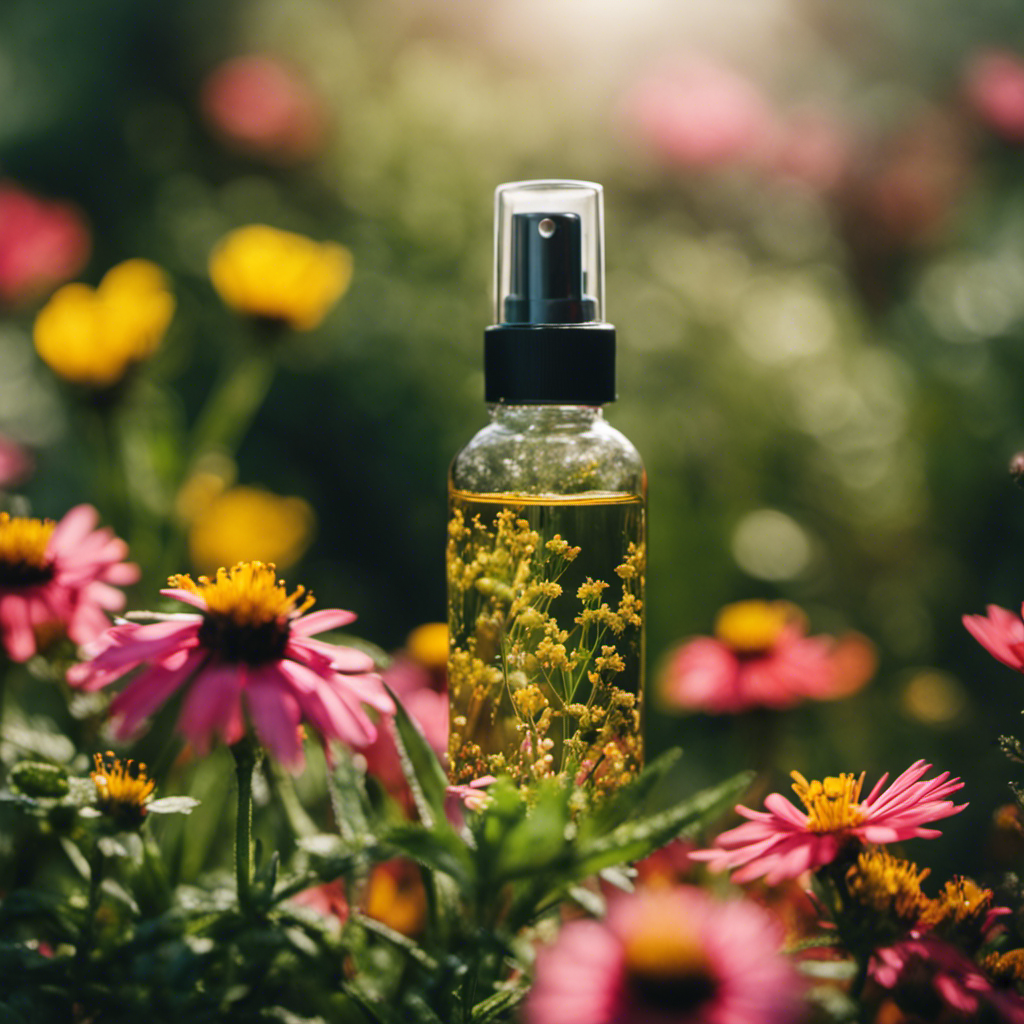
Using essential oils is a natural and safe way to control pests in your garden. Not only do they serve as an alternative to chemical pesticides, but they also provide various benefits for your plants and the environment.
Essential oils have been proven to repel pests like mosquitoes, ants, and aphids without causing harm to beneficial insects such as bees and butterflies. Additionally, they possess antimicrobial and antifungal properties that can protect your plants from diseases and infections.
Moreover, essential oils can even attract helpful insects that aid in pest control. You can easily create your own DIY essential oil recipes at home using ingredients like peppermint, lavender, and tea tree oil.
Companion Planting for Natural Pest Deterrence
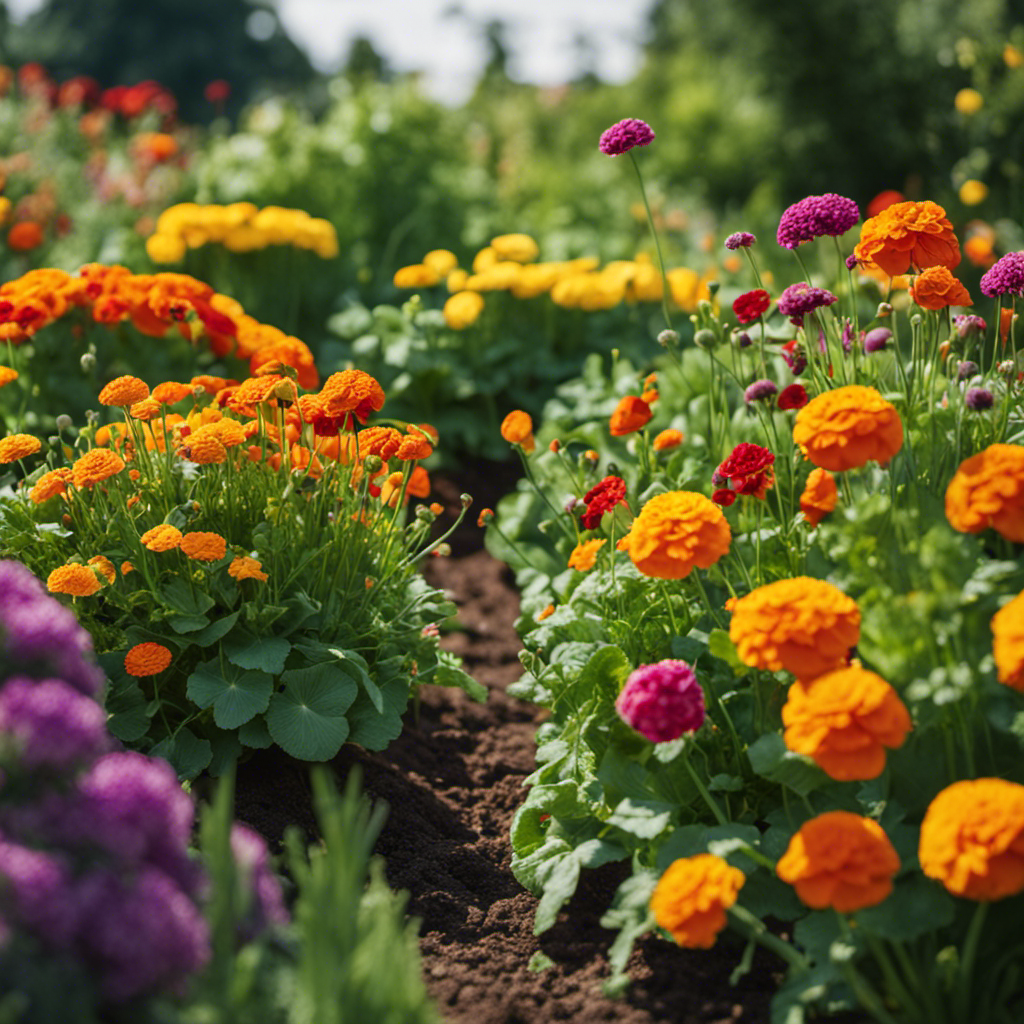
Enhance your pest control routine in the garden by incorporating companion planting strategies to naturally deter pests.
Companion planting involves growing certain plants together to maximize their benefits and naturally repel pests.
One effective technique is intercropping, where different crops are grown in close proximity. This method confuses pests and makes it harder for them to find their preferred plants. For example, planting onions and carrots together can deter carrot flies.
Another strategy is trap cropping, where attractive plants are planted to lure pests away from main crops. Planting marigolds around the vegetable garden can attract aphids and keep them away from prized tomatoes.
Homemade Insecticidal Sprays for Garden Protection
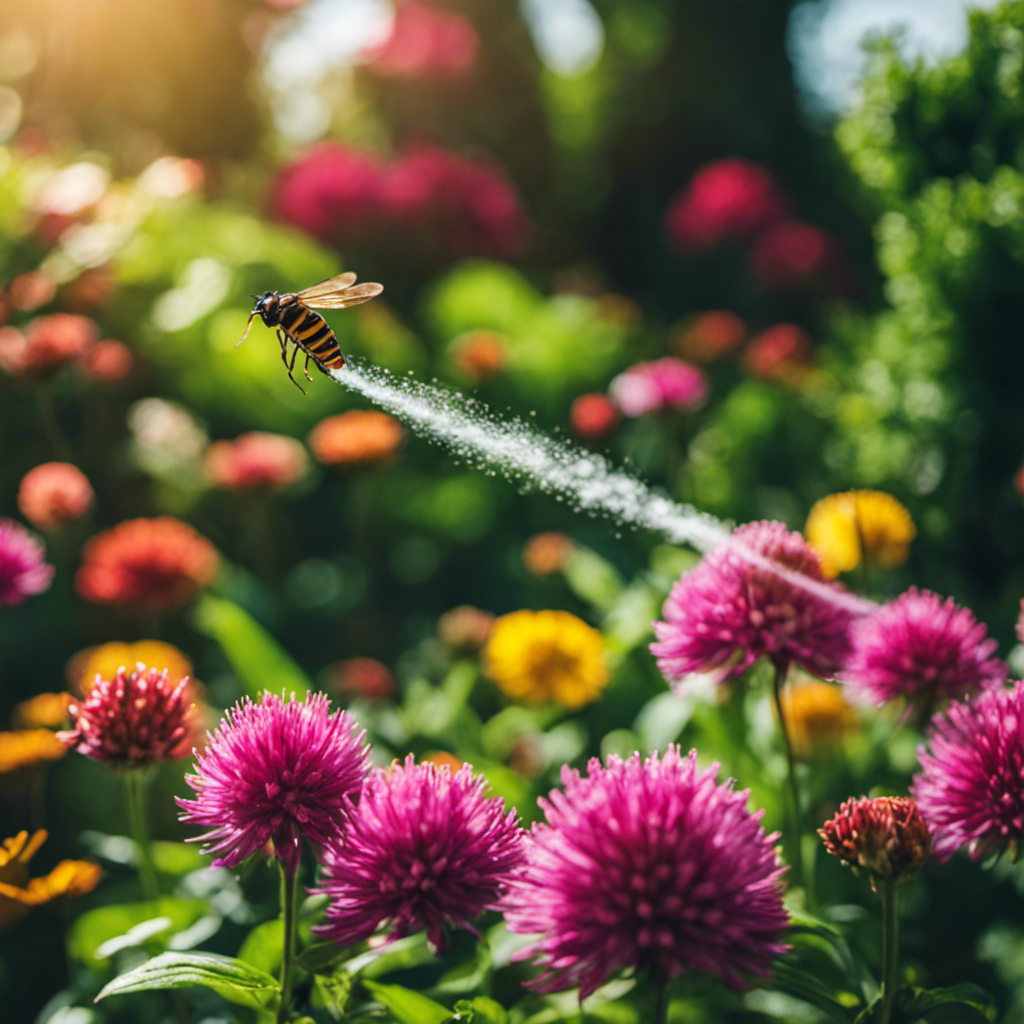
Protect your garden from pests with homemade insecticidal sprays. As part of organic pest control, homemade sprays made from natural ingredients can effectively deter and eliminate unwanted insects. These sprays are simple to make and use, providing a safe and eco-friendly way to maintain a healthy, pest-free garden.
Here are three easy and effective homemade insecticidal sprays you can try:
-
Oil Spray: Mix 2 tablespoons of vegetable oil, 1 teaspoon of dish soap, and 1 quart of water in a spray bottle. Apply the mixture directly to the plants, and reapply every 1-2 weeks or after rainfall.
-
Garlic Spray: Crush 2 bulbs of garlic and mix them with 2 teaspoons of mineral oil. Let the mixture sit for 24 hours, strain it, and add 1 quart of water. Spray this solution onto your plants, and reapply every 2 weeks.
-
Pepper Spray: Boil 2 tablespoons of hot pepper flakes in 1 quart of water for 5 minutes. Let the mixture cool, strain it, and then spray it onto your plants. Reapply every 1-2 weeks.
These homemade insecticidal sprays offer an effective defense against pests without the use of harmful chemicals. Incorporate them into your gardening routine for a natural and environmentally friendly approach to pest control.
Beneficial Insects: Nature’s Pest Control Army
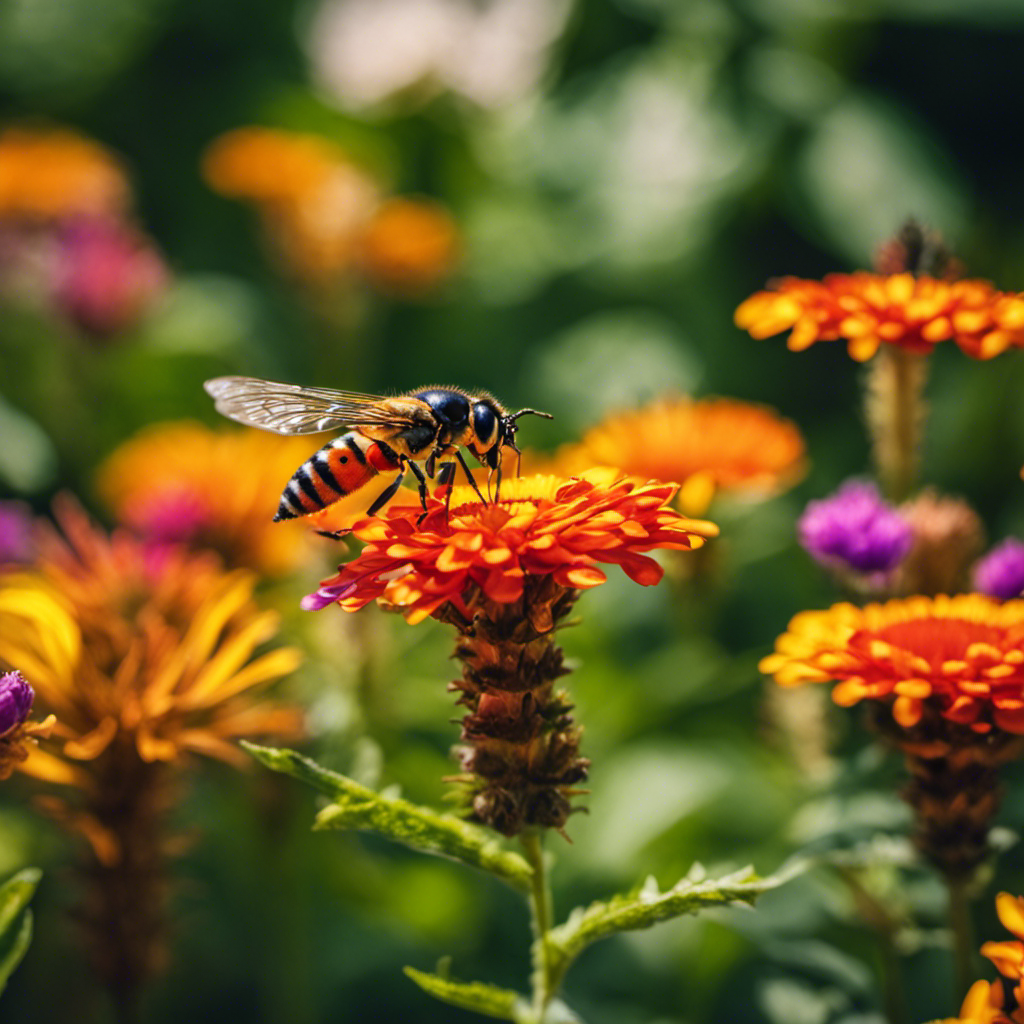
Beneficial Insects: Nature’s Pest Control Army
Beneficial insects play a vital role in maintaining the balance of your garden ecosystem. These small but mighty creatures act as nature’s pest control army, effectively managing harmful pests without the need for toxic chemicals.
To attract these beneficial insects to your garden, it’s important to create suitable habitats for them. One way to do this is by planting a diverse range of flowers, herbs, and shrubs that provide nectar and pollen sources. These plants also offer shelter and nesting sites, which are essential for the insects’ survival.
In addition to planting the right vegetation, you can create insect-friendly environments in your garden. For example, rock piles, log piles, and water sources can attract beneficial insects like ladybugs, lacewings, and bees. These insects not only help control pests, but they also serve as pollinators, ensuring the successful reproduction of many plants in your garden.
By creating favorable conditions for these beneficial insects, you’ll not only have a healthier garden, but also a more vibrant and productive one. The presence of these natural pest controllers will help maintain the balance of your garden ecosystem, reducing the need for harmful chemicals and promoting a more sustainable approach to gardening.
Physical Barriers to Keep Pests at Bay
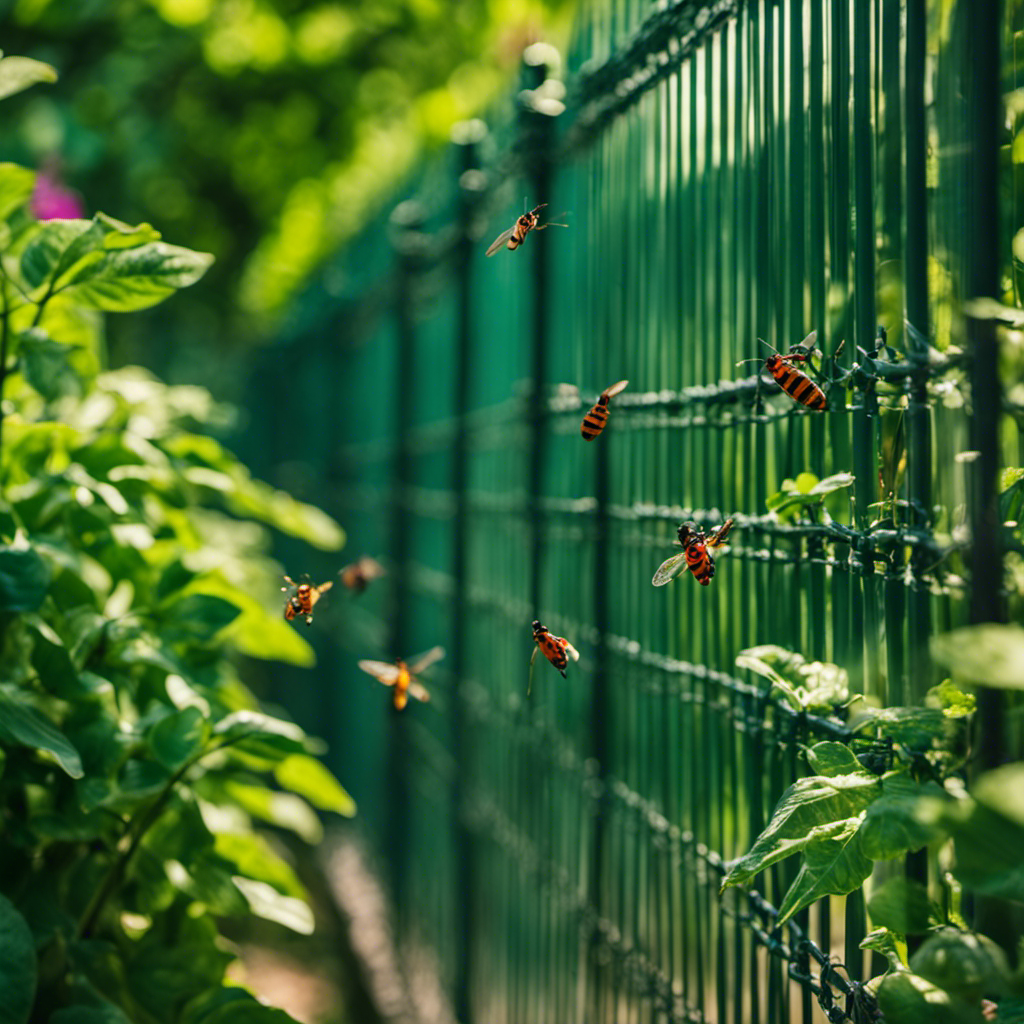
If you’re looking to protect your garden from pests, using physical barriers is a smart choice. These barriers act as a shield, keeping pests away from your plants and preventing damage.
One effective natural pest repellent is a floating row cover. This lightweight fabric creates a barrier that allows sunlight, air, and water to reach your plants while keeping pests out.
Another option is to use insect netting, a fine mesh material placed over plants to prevent pests from accessing them.
You can also use fencing or chicken wire to keep larger pests, such as rabbits or deer, out of your garden.
Conclusion
By incorporating essential oils, companion planting, homemade insecticidal sprays, and beneficial insects, you can create a green garden that’s naturally pest-free. These effective tricks not only provide pest control but also contribute to a healthier and more sustainable gardening experience.
So why not banish those bugs naturally and enjoy a garden that’s both beautiful and environmentally friendly? Your garden will thank you, and so will the planet.
